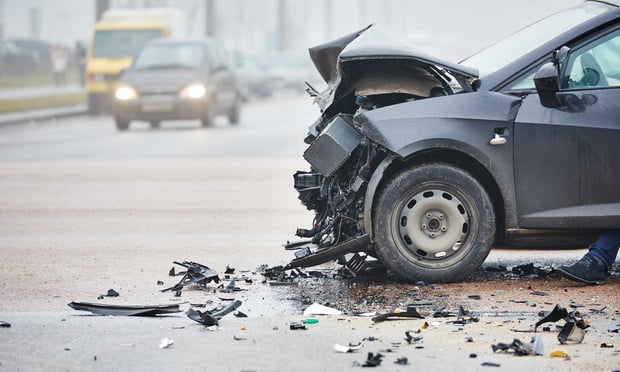(Bloomberg) -- Self-driving technology promises to pretty much transform the auto industry as we know it.
It may also change the business of selling motorcycles — but in a very different way.
It all comes down to safety, according to Karl Viktor Schaller, head of development at BMW Motorrad.
When robots are at the wheel, far fewer bikers will die on the road, which won’t be lost on all those people who pine for a motorcycle but have always been too scared to buy one.
“It would mean a dramatic enhancement in safety for the motorbike,” Schaller said. “And it would guarantee a wider user group.”
Danger of left turns on American roads
The math is as straightforward as it is compelling. Consider a left turn on an American road: A vehicle turning across a lane of opposing traffic has little to do with the bike rider, but is one of the most dangerous things in motorcycling. When motorcyclists die on the road, this is how it happens one out of five times, according to crash statistics from the National Highway Traffic Safety Administration.
This year, about 1,000 riders in the U.S. will lose their lives to the left turns of others. Cars traveling in the same direction as the motorcycle often don’t notice the bike overtaking on the left. Cars making a turn while coming from the opposite direction either fail to see the oncoming bike, or misjudge its speed.
Robot cars, in theory, won’t make either of these mistakes. At first, they will be able to “see” the motorcycle with sensors or radar and either alert the driver or actively prevent the vehicle from cutting off the bike.
'Talk' to other vehicles on the road
But that’s just the beginning. Eventually, motorcycles will “talk” to all of the other vehicles on the road, constantly reminding them where they are, where they are heading, and at what speed. “We can use that to build an electronic safety cage around a motorbike,” BMW’s Schaller said.
Once every aspiring biker realizes that the driver next to him isn’t an existential threat, sales will climb in some places. Xavier Mosquet, a senior partner at Boston Consulting Group, said the bike boost will be most pronounced in markets such as the U.S., where people ride for fun, and in China and India, where many choose motorbikes because they are relatively inexpensive transportation.
Conversely, in such places as Europe. where motorcycles are often the best way to avoid traffic, self-driving cars may actually dent sales, according to Mosquet. If all goes as planned, there will be fewer tie-ups or accidents, less rubbernecking, and thus less to be gained by jumping on a bike and splitting lanes of standstill traffic.
“I think it’s going to depend on the motivation and the location,” Mosquet said.
Nevertheless, for motorcycles and the companies that make them, self-driving cars can’t come soon enough.
Fatalities for U.S. drivers have surged in the past 18 months: Last year, traffic deaths in the U.S. climbed by 7.2 percent, the largest uptick since 1966. Fatalities were up by a further 10.4 percent in the first half of this year. NHTSA chief Mark Rosekind called the increase in driving deaths “an immediate crisis.”
Motorcyclists suffered 14.2% of all 2015 traffic deaths
A disproportionate number of these fatalities are motorcycle riders, as revealed by one shocking statistic: While bikers account for less than 1 percent of vehicle miles traveled in the U.S., motorcyclists suffered 14.2 percent of all traffic deaths in 2015.
The biggest problem is that Americans are driving more, thanks to a bullish labor market and cheap gas. But even on a per-mile basis, the death rates are alarming. NHTSA said the culprit is an influx of younger drivers who are both inexperienced and more inclined to be reckless.
Distraction is a problem as well. An estimated one in 10 fatal crashes is caused by not watching the road, though the real number could be far higher than the data suggest.
One NHTSA official who requested anonymity said distraction is difficult to measure after the fact, unlike blood-alcohol levels. But the proliferation of smartphone technology and texting has often been cited as a potential cause.
It’s hoped that autonomous cars will reduce these terrible numbers. And if these self-driving cars embolden a new wave of easy riders, they’ll start showing up soon. Mark Reuss, product development chief at General Motors Co., said new cars will be “mostly in charge” of driving by 2020 and fully in control by 2025. Tesla Motors Inc. Chief Executive Officer Elon Musk has a similar forecast — he thinks half of all cars made in 2022 or 2023 will be fully autonomous.
Self-driving motocycles lagging behind self-driving cars
Self-driving motorcycles, meanwhile, may be farther off. Yamaha Motor Co., which is developing a bike-riding cyborg dubbed Motobot, estimates they will lag self-driving cars by at least a decade. But autonomous features will help motorcycle riders far sooner — BMW envisions a suite of systems that map the road ahead and alert the rider to curves and conditions. If the bike calculates that it is going too fast for upcoming terrain, it can warn its pilot.
The trade-off for cars getting safer is that it may make riding in them dull. But biking will be safer while remaining fun. Driving a motorcycle will be, well, driving. Riding in a car will largely be about checking email and catching up on Game of Thrones.
“We are not about going from A to B,” Schaller said. “Motorbikes are about going from A to A. Our business is pleasure.”
Want to continue reading?
Become a Free PropertyCasualty360 Digital Reader
Your access to unlimited PropertyCasualty360 content isn’t changing.
Once you are an ALM digital member, you’ll receive:
- Breaking insurance news and analysis, on-site and via our newsletters and custom alerts
- Weekly Insurance Speak podcast featuring exclusive interviews with industry leaders
- Educational webcasts, white papers, and ebooks from industry thought leaders
- Critical converage of the employee benefits and financial advisory markets on our other ALM sites, BenefitsPRO and ThinkAdvisor
Already have an account? Sign In Now
© 2025 ALM Global, LLC, All Rights Reserved. Request academic re-use from www.copyright.com. All other uses, submit a request to [email protected]. For more information visit Asset & Logo Licensing.








